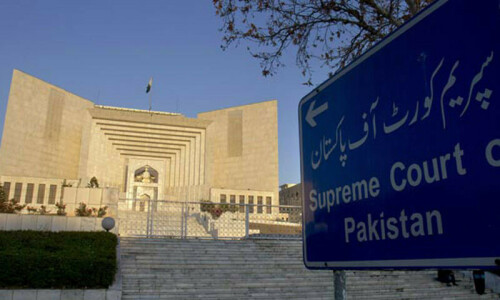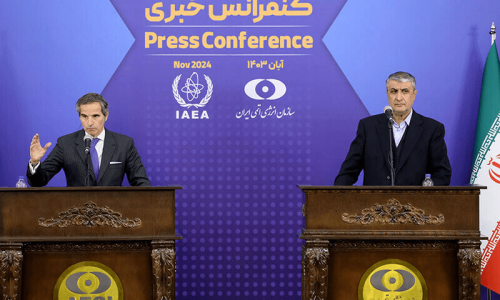LAHORE, Jan 26: The government can save millions of rupees a year by developing primary care as a first line of defence and emphasising prevention on cure.
This was stated by Pakistan Academy of Family Physicians (PAFP) President Dr Tariq Mahmood Mian at a press conference here on Monday.
“Providing free kidney dialysis can cost up to Rs32,000 per patient, but ensuring a patient gets the regular check-ups he needs to prevent such a serious deterioration can cost as little as Rs32,” said Dr Mian, adding that the government must seek to adopt a system of referrals between family physicians and specialists in order to avoid unnecessary testing and ensure greater care for patients.
He stated that in developed nations, families were required to register with a family physician, also known as general practitioner, who was the first line of defence in case of all ailments except emergencies. This ensured that the family doctor was able to help patients stay healthier and avoid the need for costly curative treatments at later stages of life. By keeping a complete patient history, the need for extra testing and the associated costs were also eliminated, he said.
PAFP secretary-general Dr M Tahir Chaudhry said family physicians were not requesting any financial aid from the government but asked only that the government put an end to the practice of allowing drugs to be made available without prescription, as this was detrimental to patients’ health and encouraged quackery.
He said antibiotics and tranquilisers were widely available without prescription and that the situation was worse than in Bangladesh or Sri Lanka where tight controls were applied. The doctors also asked the government to increase the statutory fines applicable to quack doctors, currently set at a lowly Rs240.
Dr Mian added that these and other topics would be discussed at the upcoming Family Con, an international conference for family physicians to be held on Feb 14-15 at Aiwan-i-Iqbal. More than 3,000 doctors would be in attendance.
The conference would also include a workshop for those doctors undertaking their part-two examinations of the Member of Royal College of Physicians (MRCP) as well as seminars on new developments in the field.














































Dear visitor, the comments section is undergoing an overhaul and will return soon.